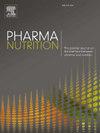A comprehensive review of probiotic claims regulations: Updates from Asia-Pacific, United States, and Europe
IF 2.4
Q3 NUTRITION & DIETETICS
引用次数: 0
Abstract
Background
Probiotics are defined, classified, and regulated differently across countries, which affects consumer protection and market access for manufacturers. This review examined the regulatory similarities and differences for probiotics in the APAC region, the U.S., and Europe to address these challenges.
Method
A detailed literature search was conducted on databases such as Google Scholar, PubMed, and open sources of relevant regulatory authorities. Relevant articles, guidelines, and recommendations related to probiotics in APAC, U.S. and Europe were screened and reviewed.
Results
Probiotics are categorized as "food" in U.S., Europe, Japan, Thailand, Malaysia, Singapore, and Indonesia, with Malaysia, Singapore, and Indonesia also classifying them as "health supplements." Other terms like “functional food," "novel food," and "health functional food" are used in various countries. Claims for probiotics also vary internationally. Countries such as China, Philippines, and Singapore have pre-approved claims, while the U.S., South Korea, Australia & New Zealand, and India do not have any pre-approved claim. Europe enforces the strictest rules and generally does not approve any probiotic health claims, whereas U.S. and APAC regions are more flexible. For instance, in Thailand, claim of “reducing disease risk” is permitted.
Conclusion
Harmonizing the regulations could benefit consumers and manufacturers by ensuring consistent standards and facilitating market entry. This would help industry stakeholders navigate the complex regulatory landscape and aid consumers in understanding the benefits of probiotic products.
益生菌声明法规的全面回顾:来自亚太、美国和欧洲的最新情况
不同国家对益生菌的定义、分类和监管不同,这影响了消费者保护和制造商的市场准入。本文综述了亚太地区、美国和欧洲益生菌监管的异同,以应对这些挑战。方法在谷歌Scholar、PubMed等数据库和相关监管部门的公开资料中进行详细的文献检索。筛选和回顾了亚太地区、美国和欧洲有关益生菌的相关文章、指南和建议。结果益生菌在美国、欧洲、日本、泰国、马来西亚、新加坡和印度尼西亚被归类为“食品”,马来西亚、新加坡和印度尼西亚也将其归类为“保健品”。其他术语如“功能食品”、“新型食品”和“保健功能食品”在不同国家使用。各国对益生菌的宣传也各不相同。像中国、菲律宾和新加坡这样的国家都有预先批准的主权要求,而美国、韩国、澳大利亚和;新西兰和印度没有任何预先批准的索赔。欧洲执行最严格的规定,通常不批准任何益生菌健康声明,而美国和亚太地区则更为灵活。例如,在泰国,允许声称“降低疾病风险”。结论法规的统一有利于保证标准的一致性,有利于市场准入,有利于消费者和生产企业的利益。这将有助于行业利益相关者在复杂的监管环境中导航,并帮助消费者了解益生菌产品的好处。
本文章由计算机程序翻译,如有差异,请以英文原文为准。
求助全文
约1分钟内获得全文
求助全文
来源期刊

PharmaNutrition
Agricultural and Biological Sciences-Food Science
CiteScore
5.70
自引率
3.10%
发文量
33
审稿时长
12 days
 求助内容:
求助内容: 应助结果提醒方式:
应助结果提醒方式:


